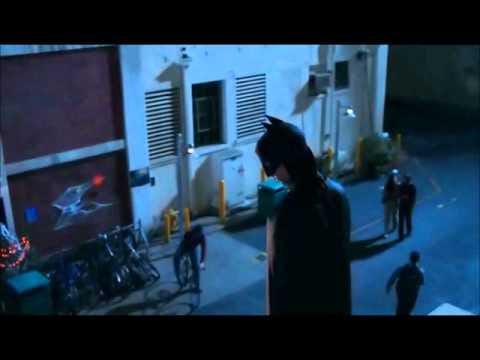In 1986, Frank Miller changed the shape of all Batmans to come with The Dark Knight Returns. It’s widely considered one of the best and most important Batman comics ever made, as well as just one of the best comics in general. Miller is credited with creating this darker, grimmer version of Batman and making them appeal to more mature audiences.
It’s possible, in fact, that the adulting of mainstream comics really begins here. But I’m not a comics expert. I’ve barely even read any.
I was born in 1987.
What this means for me is that this darker version of Batman has always been with me.
I grew up watching the 1992 Batman cartoon series, which is also considered one of the greatest and most important pieces of Batman media, and that cartoon relies heavily on the moodier, darker Batman Miller birthed.
What this also means is that I’ve always thought Batman was pretty dang neat.
When I finally read The Dark Knight Returns in, I think, 2015, I was severely underwhelmed for the exact reason that made it so groundbreaking in 1986: everything after it was made in response to it.
In The Invention of Nature, Andrea Wulf explains how Alexander von Humboldt was one of the most important naturalists, explorers, and geographers of the 19th century. And yet, he has been almost completely forgotten. The reason is worth writing a whole book about, which you should read.
But I’ll summarize: von Humboldt so dramatically and fundamentally changed the way we understand nature that his importance managed to disappear.
Our entire modern understanding of nature relies on his body of work to the point that his observations—once groundbreaking—are now obvious and so barely worth commenting on.
That was how I felt reading Miller’s grimdark Batman.
Instead of being something new, this was just another iteration of the only Batman I’d ever known.
All this preamble is so that I can tell you that The Batman (2022), the latest reboot of a constantly rebooted character, starring Robert Pattinson and written and directed by Matt Reeves, is just not very good.
It’s also three hours long.
Babies, even Christopher Nolan’s epic version of Batman never manages to stretch to the three-hour mark. And those movies are arguably overstuffed with plot.
Not so with The Batman!
At around the 150 minute mark (this is when Nolan’s Dark Knight was rolling credits), the Riddler tells Batman that he knows that Batman is the real identity.
Incidentally, this is something the Joker says in the Dark Knight.
I could go on at length about the length of this movie and the turgid pacing, the poor dialogue, the overwrought voice over, the ways it mimes Nolan’s Dark Knight (the interrogation scene so directly harkens to Ledger’s Joker and Bale’s Batman that it only reminds the viewer of what they could be watching), and on and on.
But I really just want to say this:
If we must consistently reboot superhero franchises—and apparently, we must—can we at least reboot these characters in a new way?
The reason Nolan’s Batman was so striking was due to the contrast between its grimdarkness and the silly cartoonishness of the 90s era Batman movies. Yes, we could always look at the darker version of Batman from the cartoon or the comics, but for many people, this campy and silly version of Batman was the one they knew.
And so Nolan grounding the action, dialing up the violence, the heaviness, seemed like something different. Something novel. Something worth doing.
But Batman Begins came out nearly twenty years ago. This is the third reboot of the character in that time period.
And each of these three Batmans have the same brooding (anti)hero, the same themes, even the same aesthetic and color palette. They all bellow their seriousness into the air as if someone out there is still daring them to try to make comics into real ass shit for adults.
But it all feels quite silly at this point. Worse than that, it’s monotonous.
After watching it, I was quite surprised to see the near universal acclaim for the movie. I expected to see at least some people poking fun at the whole affair and how overwrought and silly it becomes.
Honestly, when I got to the first Batman voice over, I couldn’t help but be reminded of Abed from Community’s monologue in the video at the top of this post.
And it got worse!
Anyway, I’ll be rewatching the Batman movies in order to try to figure out how we got here, so expect more Batman essays in the coming months.
And now for some free books:




It's bewildering.
Aren't there multiple universes of Batman? Noir Batman? Dracula Batman? Red Rain Batman?
Great work on this one, as always.
No offense to Mr. Reeves, but the best possible interpreter of the Bat-canon is a nine-year-old doodling Batpeople on the margins of his schoolbooks.
I'm being humorous but not hyperbolic - even people really into the character, I think, would say Batman's arrested development is key to the character in a way that it isn't for the other big superheroes. You can have Spidey go through adolescence, adulthood, fatherhood even and still have the fundamental thrill of his character - what if you could walk up walls and fly around the city? - remain in tact. Superman "adulting" is sort of core to his character, and I think the real reason most "mature" "deconstructions" of the superhero myth from Watchmen on down use him as the model and not a "relatable" character. But Batman needs to be a kiddy hero, because age him up any more and it becomes ludicrous for a grown man with no powers to dress up like a bat and throw boomerangs at people instead of just shooting them.
I'm sure Matt Reeves is trying to make a point about income inequality or whatever but I just think that is a fundamentally dumbass take on the character.